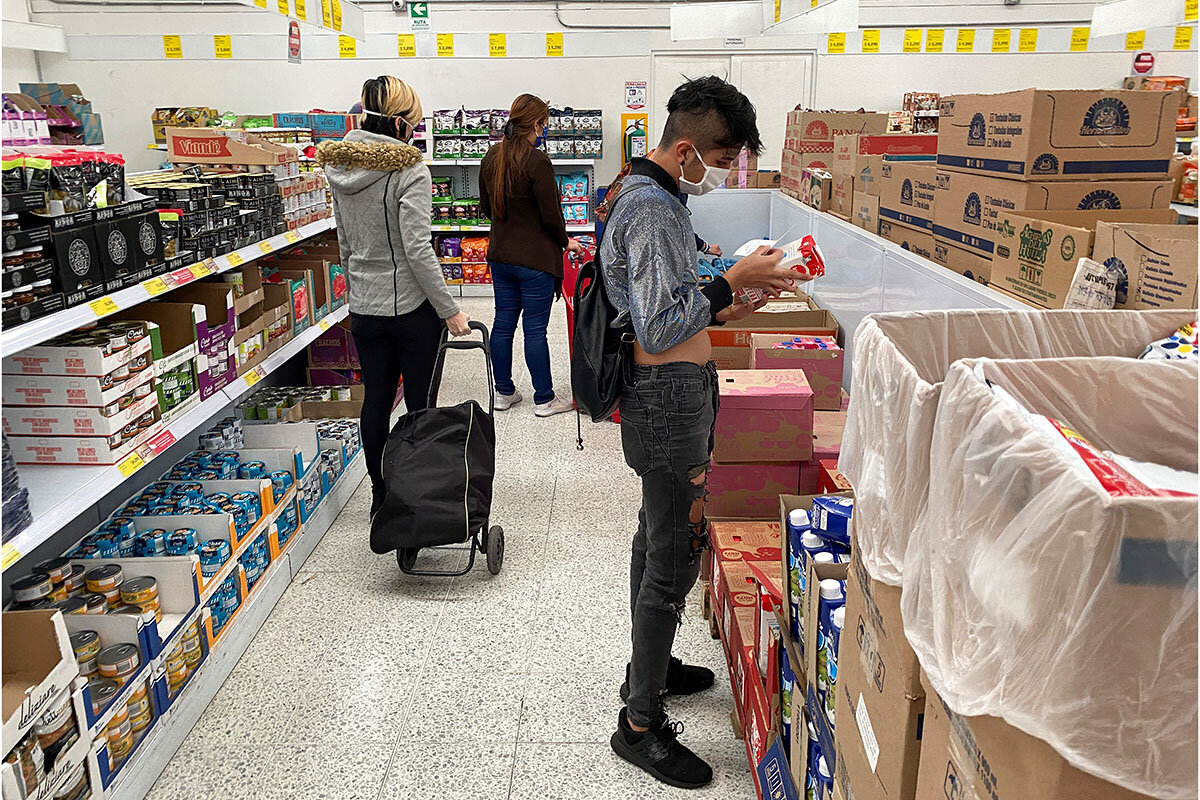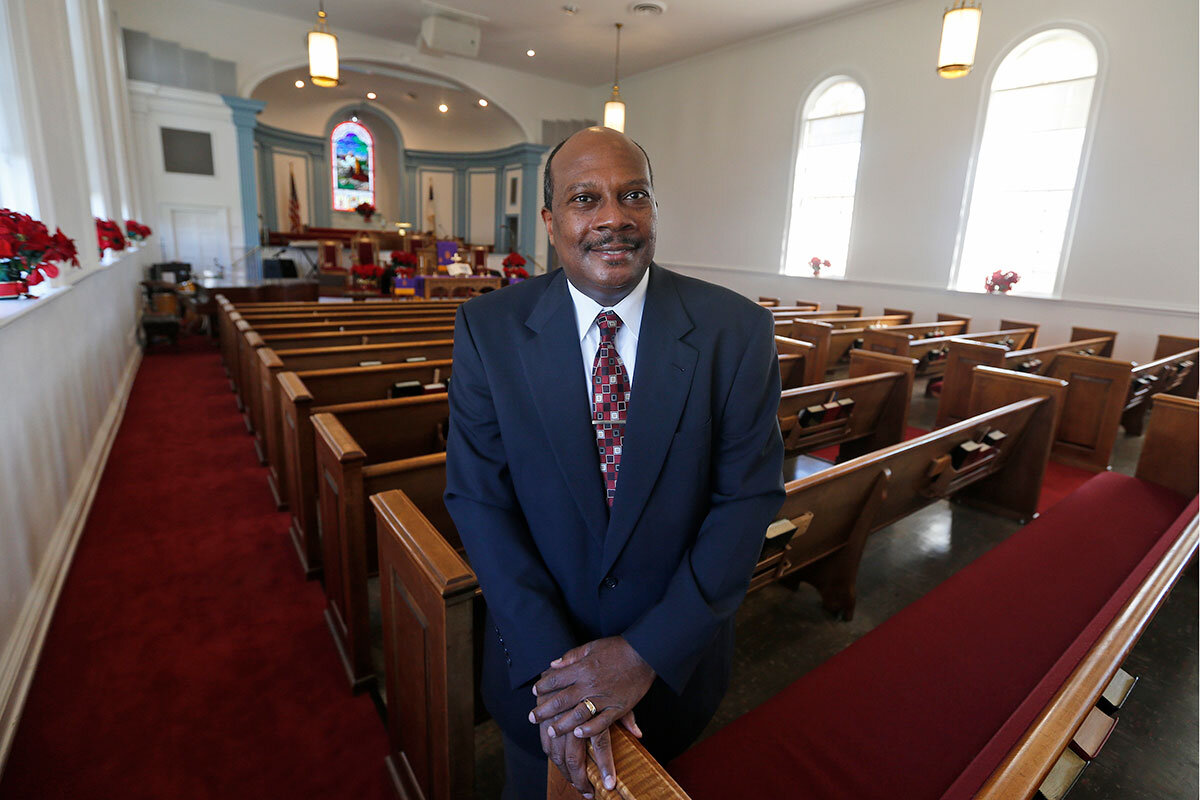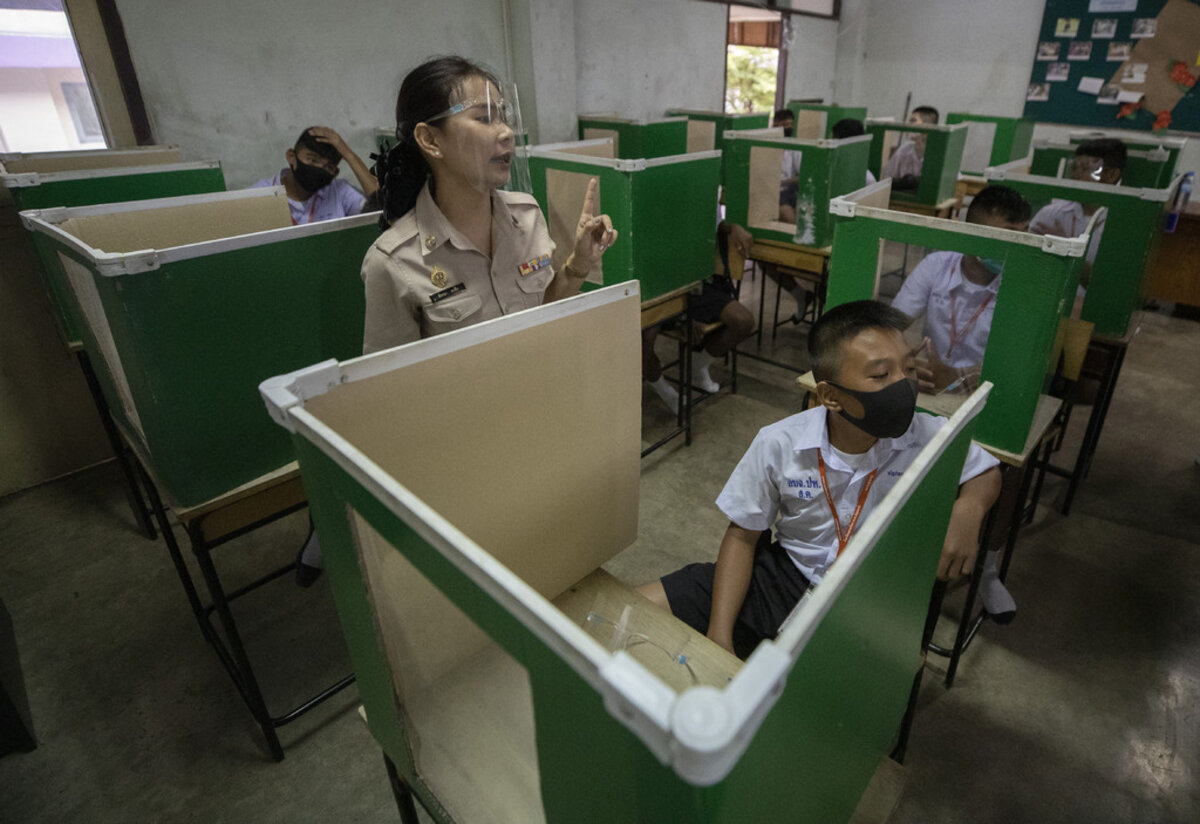COVID-19 has transformed our personal lives and brought to a head pressing political, economic, and social questions. Their answers could transform the world, but much depends on whether we’ve reached a “reset moment” – and what role citizen activism may play. Last in our global series “Navigating uncertainty.”
Monitor Daily Podcast
- Follow us:
- Apple Podcasts
- Spotify
- RSS Feed
- Download
 Amelia Newcomb
Amelia Newcomb
If you don’t like something, change it.
That’s part of the “MLK Way,” the credo of the Dr. Martin Luther King Jr. Early College in Denver, Colorado. And a group of Black students there took it to heart after a trip last October with Principal Kimberly Grayson to the National Museum of African American History and Culture in Washington, D.C.
As the group toured the museum, Ms. Grayson told NPR, they saw a lot that didn’t show up in their history lessons. “That’s when we decided our history is only reflective of the major icons – Martin Luther King, Rosa Parks. It’s not reflective of the beginning of Black history.”
Several students approached Ms. Grayson, who is also Black, to press for a more inclusive history curriculum. She encouraged them to make their case to the history teachers, who are all white. That resulted in the teachers traveling to the museum – and deciding immediately to start reworking the curriculum.
“They presented their changes to the students,” Ms. Grayson says. It “brought us to tears to see and hear the history teachers talk about how they felt walking through the museum.”
The students join numerous experts who have called for reforms toward a far more comprehensive and integrated approach to teaching U.S. history.
“You have to think of [students] as future police officers, judges, lawyers, and doctors,” LaGarrett King, director of the Carter Center for K-12 Black History Education, told NBC. “If we leave out ... knowledge of our country, particularly of nonwhite people, then how will those citizens become good citizens?”










